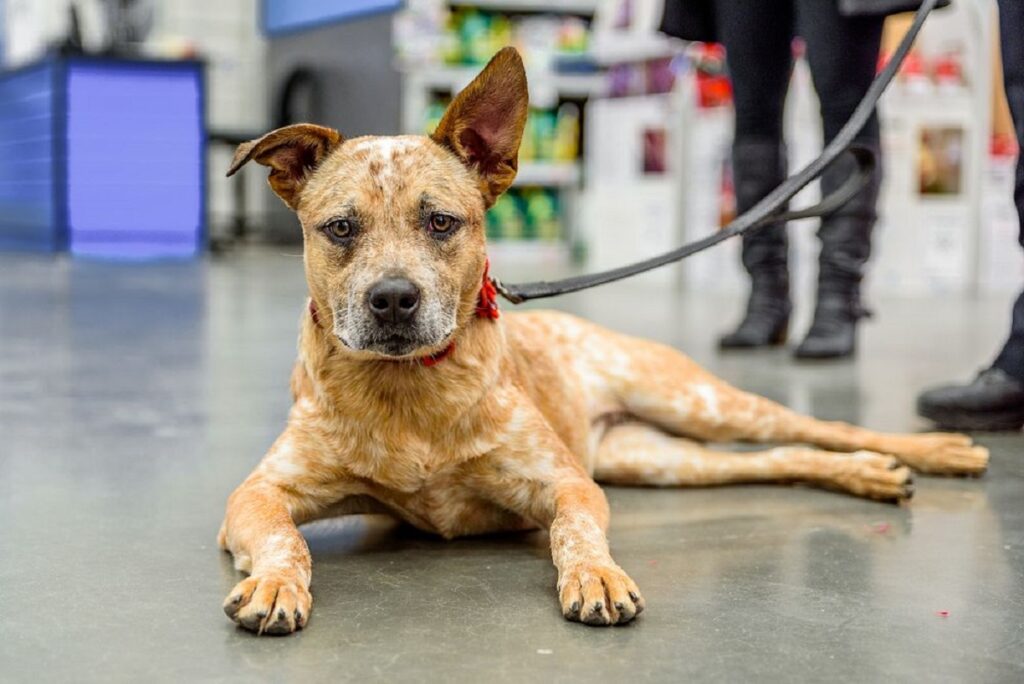Politics
Corporate greed blamed for rising veterinary costs

VETERINARY care is unaffordable for many pet owners in Wales due to “ridiculous” price increases fuelled by corporate greed, a committee heard.
Caroline Allen, chief veterinary officer at RSPCA Cymru, said a survey found more than half of Welsh pet owners were worried about being able to afford vet bills.
She told the Senedd’s petitions committee it is a challenging time for the animal rescue sector due to inflation and the wider cost-of-living crisis.
Dr Allen, a practising vet for 20 years before joining the RSPCA, said 78% of pet owners reported an increase in bills and 90% were worried about feeding their pets.
She explained that when she qualified many practices were owned by vets and embedded within the community, but most have since been bought by big businesses.
Calling for reform of the “outdated” Veterinary Surgeons Act 1966, Dr Allen said vets can be held to account under the law but corporate entities cannot.
She said the RSPCA has had to withdraw direct services for the public to focus on its core role of helping animals suffering neglect and cruelty.
Carlie Power, representing the Cats Matter charity, described price increases as ridiculous, hitting out at a “continuous greedy rise in profits”.
Giving evidence to an inquiry on the corporate takeover of the veterinary profession, Ms Power told MSs she had to pay £62 for three days’ worth of eyedrops for her cat.
She said it cost a total of £52 to have one of her cats, Dolly, neutered seven years ago but she recently took another cat, Nix, and was billed £159 – an increase of more than 200%.
Ms Power, who has five cats, warned that responsible owners cannot afford to get their pets neutered, which piles yet more pressure on shelters.
She raised a Daily Mirror article on veterinary practices in Turkey offering cut-price treatment due to rising costs in the UK. Dr Allen warned this could lead to “hideous welfare problems”.
Peredur Owen Griffiths, who has two cats, called Treacle and Marmalade, and once wanted to be a vet, asked witnesses how the profession has changed over the past 25 years.
Sue Paterson, president of the Royal College of Veterinary Surgeons, told the Plaid Cymru politician that practice structure, facilities, workforce and education are the four big changes.
She said 41% of Wales’ 351 practices are corporatised, with around 150 owned by the “big seven”, which is lower than elsewhere in the UK.
Dr Paterson warned the Royal College cannot regulate veterinary practices, saying: “We can only regulate veterinary professionals – that is a huge hole in the regulatory process.”
Julia Mewes, who set up The Mewes Vets as an independent practice 28 years ago, raised concerns about other vets working on commission, saying she does not set financial targets.
She warned this has created anxiety, an unpleasant atmosphere and competition between colleagues, rewarding the best at selling rather than the best at caring.
Jack Sargeant, the Labour committee chair, who has a cavalier king Charles spaniel, named Coco, highlighted the Competition and Markets Authority’s concerns about the sector.
Peter Fox, the Tory MS for Monmouth, who has been a farmer for 30 years, cautioned against demonising the private sector, pointing to positive advances in treatment.
The short inquiry was prompted by a 308-name petition submitted by Linda Joyce-Jones, a campaigner, who warned that corporatisation has had devastating consequences.
Dr Joyce-Jones explained that a change of law in 1999 allowed practices to be owned by not only qualified veterinary surgeons, paving the way for big business.
Describing the profession as barely recognisable now, she wrote: “In many parts of Wales, it is virtually impossible to find an independently run veterinary practice.
Dr Joyce-Jones said corporations also own laboratories, drug companies, and pet crematoriums, as well as shares in many pet food businesses.
She warned: “Such a monopoly makes the few remaining independently run practices’ presence virtually untenable.”
News
Community asked for views on allocation of new St Davids homes

THE FIRST phase of Pembrokeshire County Council’s Glasfryn housing development in St Davids is progressing well with the second phase also underway.
The development being built by GRD Homes Ltd, began in November 2023, with a first phase completion date of Winter 2024 looking hopeful, ahead of the scheduled plans.
The first phase consists of seven properties, including a mixture of one and two bedroom bungalows
As completion draws closer the properties will be advertised via Pembrokeshire Choice Homes.
Ahead of this, the Council’s housing team will be holding community engagement on the 13th August 2024 at the Ty’r Pererin Centres, Quickwell Hill, St Davids, SA62 6PD, 5pm-7pm.
This will be a chance for officers to liaise with the local community about the allocation process for these properties.
Glasfryn’s second phase is well underway, with the initial groundwork already completed. This phase includes a further 11 two bedroom bungalows, with a completion date in late 2025.
These bungalows will meet the latest Welsh Government’s Development Quality Requirement, and will be energy efficient, built to EPC A specification and include solar panels to help tenants with running costs.
The Glasfryn development is funded in partnership with Welsh Government.
Cabinet Member for Housing Cllr Michelle Bateman said: “We are really keen to work with the community on a local lettings policy for these new properties, as we have done for our developments in other parts of the County.”
If you have any queries please email the Customer Liaison Team on [email protected], phone them on 01437 764551, or visit Housing’s Facebook page.
Business
Legal call to stop £6m expansion of holiday park still ongoing

A LEGAL request to overturn a Pembrokeshire County Council-granted approval for a £6m expansion of a south Pembrokeshire holiday park is still ongoing despite a previous announcement it had been turned down, county planners heard.
Back in February, Pembrokeshire planners were informed a legal challenge to a November 2023-granted application for works at Heritage Park, Pleasant Valley/Stepaside had been launched.
The holiday park scheme had previously been backed twice by county planners after a ‘minded to approve’ cooling-off period was invoked as it was against repeated officer recommendations to refuse.
The controversial scheme by Heritage Leisure Development (Wales) Ltd includes the installation of 48 bases for holiday lodges, a spa facility at a former pub, holiday apartments, a café and cycle hire, equestrian stables, a manège and associated office, and associated works.
It is said the scheme, next to the historic remains of the 19th century Stepaside ironworks and colliery, will create 44 jobs.
Officer grounds for refusal, based on the Local Development Plan, included the site being outside a settlement area.
Along with 245 objections to the current scheme, Stepaside & Pleasant Valley Residents’ Group (SPVRG Ltd) – formed to object to an earlier 2019 application which was later withdrawn – also raised a 38-page objection, with a long list of concerns.
A failed legal challenge to try and overturn a council decision to approve three separate planning applications at Heritage Park was launched in 2021 by SPVRG Ltd, which failed in early 2022; the council awarded costs of £10,000 despite external legal fees paid totalled £34,000 plus VAT.
At the June meeting of Pembrokeshire County Council’s planning committee members were told the recent judicial review call by SPVRG Ltd had been refused by the high court, the grounds put forward “not considered to be reasonably arguable”.
Committee chair Cllr Simon Hancock said a council request for SPVRG Ltd to pay costs incurred by the county council in defending the claim had now been submitted.
Following that, at the July planning meeting, in his chair’s announcement, Dr Hancock gave a clarification on the position.
“I can advise that whilst the application for judicial review was refused by the High Court Judge on May 31, 2024, the appellants have challenged this decision.
“This matter is listed for a renewal hearing, and accordingly the legal challenge is still in progress; I’m hoping that’s a clarification from the announcements I made back in June.”
Responding to the clarification, Trish Cormack of SPVRG Ltd pointed out it was not “an appeal,” adding: “Firstly, we are ‘requesting the decision to be reconsidered at a hearing,’ which is a bit less dramatic than ‘challenging the decision’.
“Secondly, the claim remains open for seven days after the decision on the papers in expectance of you requesting the hearing, and the form 86B comes attached to the decision with the case number already filled in for you. This is just part of the process for a judicial review. If the Judge really thought there were no merits to the case, he was free to issue a ‘without merits refusal’.
“That would have ended the claim there and then. The only way to resurrect it would have been to take it to the appeal court. But he didn’t.
“Thirdly, the announcement makes it sound like our ‘challenge’ had happened after their previous announcement, whereas in fact we only had seven days from May 31 in which to make the request, so they knew the moment we did (June 7) because we had to simultaneously email it to the court, PCC and the developer’s agent. So, they knew full well that there would be a renewal hearing.”
Farming
Farm building scheme near Lawrenny given go-ahead by planners

AN APPLICATION for a storage building at a south Pembrokeshire farm, made by a family member of an officer on Pembrokeshire County Council’s planning service, has been given the go-ahead by the authority’s planning committee.
In an application recommended for approval at the July 23 meeting of the authority’s planning committee, Laura Elliot sought permission for the erection of an agricultural storage building at Tedion Farm, a dairy farm near Lawrenny.
The application had been brought to committee, rather than being delegated to planning officers, due to the family connection.
The farm, near to the Pembrokeshire coast National Park border, comprises 270 milking cows and dairy heifer replacements kept on the farm comprising land over 138 hectares. The farm is mainly down to grass and the cows are paddock grazed in order to utilise grass efficiency.
No objections had been received from local community council Martletwy.
A report for members said: “The application seeks consent for the erection of agricultural storage building. The erection of an agricultural building will be used to store stay, hay and farm machinery.
“The building would be located within the existing farm complex, to the north-east of the site, adjacent to the main farm dwelling. The building will measure 18 metres in length by 13.6 metres in width, with a pitched roof height of 5.71 metres.”
Approval was moved by Cllr Alistair Cameron, seconded by Cllr Brian Hall.
-

 Education5 days ago
Education5 days agoMilford Tesco worker achieves Oxford dream and lands top legal job
-

 Crime4 days ago
Crime4 days agoHaverfordwest man admits having nearly 1000 child and animal images
-

 Crime4 days ago
Crime4 days agoYouth set to appear in court over serious sexual offences
-

 Crime4 days ago
Crime4 days agoPolice investigating after man injured during altercation in cemetery
-

 Education4 days ago
Education4 days agoPupils delight in ice cream treat from Pembrokeshire’s number one van
-

 Crime4 days ago
Crime4 days agoTown centre ‘stinking of skunk’ as police strip cannabis farm
-

 Crime3 days ago
Crime3 days agoFag-butt police court summonses spark debate in Pembrokeshire
-

 News6 days ago
News6 days agoProposal to give firefighters a council tax discount to go to Cabinet





























